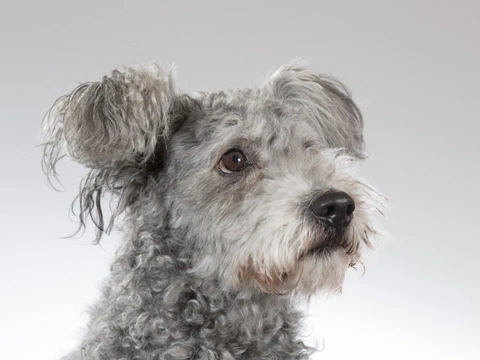
The Charming Pumi: A Dog Native to Hungary
The Pumi is another lovely breed native to Hungary and although these attractive dogs are a lesser known breed than the Puli, they have a lot going for them. They first appeared on the scene back in the seventeen hundreds and it's thought the breed was created by crossing the Puli with either a Pomeranian or a Hutespitz. However, there could well be a bit of terrier in the breed too.
The Hungarian Pumi was first bred as a herding dog and they excelled at their job because they are tenacious and alert by nature which they needed to be in order to keep herds of cattle under control. The terrier in these dogs comes into its own because they are extremely good ratters and they are also very good at keeping strangers off a property which in short, means they are excellent guard dogs. In their native Hungary, the Pumi is thought of as an excellent working dog and companion and as such they are highly prized and thought of.
Very Attractive Dogs
The Pumi is a very attractive dog with a smart and quite distinctive face. They have lovely elongated muzzles, alert eyes and upright ears which adds to their overall appeal. They can be a variety of colours which includes having all black coats to various shades of grey. Other colours include brown and reddish brown, with the one constant being that the Pumi always boasts a solid coat colour. Occasionally, a dog may be born with a white coat, but in Hungary it's the one colour that breeders don't particularly favour.
They stand at anything from 15 to 18 inches at the shoulder and can weigh 22 to 32 lbs with males being slightly taller and heavier than their female counterparts. When well cared for and fed a good nutritious diet to suit the different stages of their lives, these lovely looking dogs can live anything up to 13+ years.
Very Intelligent and Highly Trainable Dogs
The Pumi is renowned in their native Hungary for being highly intelligent which, in short means they are easy to train. However, they need to be handled with a firm yet gentle hand and their training needs to be consistent. Because they are so smart, they quickly learn bad things as well as good things they are being taught. If allowed, a Pumi can quickly turn into dominant character which means they are not the best choice for first time dog owners.
Although very loyal and loving around their owners and people they know, the Pumi can be a little wary and reserved around strangers. They also have a tendency to like the sound of their own voices and can be a little vocal, something that needs to be nipped in the bud through gentle, early training with positive reinforcement being the preferred method of teaching dogs that barking for no reason is unacceptable behaviour.
When these dogs are well socialised and trained from a young age, they make wonderful family pets and are known to be particularly good around children and other dogs, although you need to keep an eye on them when around smaller animals and cats. The reason being they boast a pretty high prey drive which can be put down to the "terrier" in them.
Early Socialisation and Training are a Must
Because the Pumi is such an intelligent dog, their training needs to start as early as possible. Like any other breed, early socialisation is a must too otherwise you might end up with an unruly, dominant yet nervous dog on your hands rather than a happy, confident and obedient canine companion.
The Pumi is a high energy character and therefore they need lots of mental stimulation and physical daily exercise to be truly happy, well-balanced dogs. Left to their own devices, they will quickly develop some unwanted behavioural issues which includes barking and thinking they are alpha dog. They are definitely not couch potatoes and do not do well when kept in apartments, much preferring to live with people who enjoy spending as much time as possible in the great outdoors with a canine companion.
Grooming Needs of the Pumi
Unlike the Puli, the Pumi although their coat is lovely and curly, it does not turn into cords. As such, their grooming needs are not as intense as that of a Puli's coat which gets matted and tangled very easily. However, they still need to be regularly groomed to get rid of any shed hair that would otherwise be left around the house. The good news is that these dogs don't shed that much except during the spring and then again in the autumn when they would need to be brushed more frequently, much like any other dog.
Robust and Healthy Dogs
The Pumi is known to be a robust and healthy dog although they are predisposed to suffer from hip dysplasia although even this hereditary condition is not seen that often in the breed. Other health issues that have been reported however, include primary lens luxation and degenerative myelopathy.
Conclusion
There are quite a few dog breeds native to Hungary, some are extremely well-known in other parts of the world, whereas other breeds are lesser known but have a lot going for them. These days more breeders and fans of the Pumi are producing healthy examples of these lovely dogs outside of Hungary although you may have to be put on a waiting list if you want to share your home with a bright, intelligent and affectionate Pumi!



